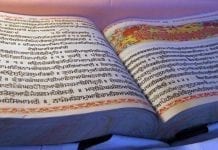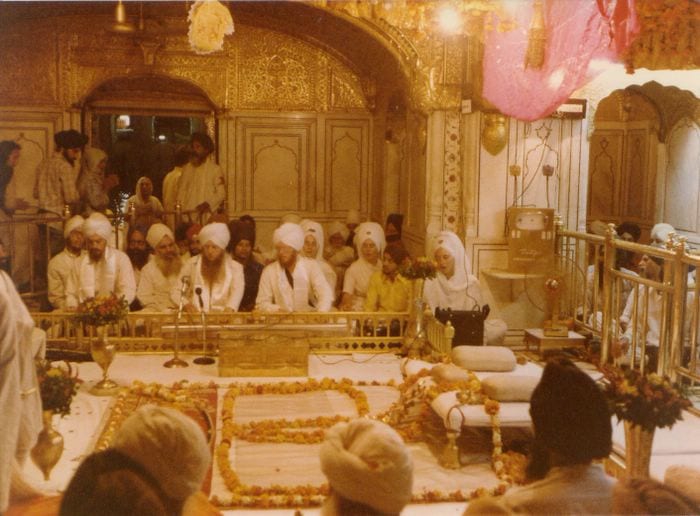ਪਰਮਾਨੰਦ (parmaa-naňd)
Meaning: noun: Parmanand, another 15th Century saint-poet, whose one hymn is contained in the Guru Granth Sahib.
Quote:
ਤੈ ਨਰ ਕਿਆ ਪੁਰਾਨੁ ਸੁਨਿ ਕੀਨਾ॥
ਅਨਪਾਵਨੀ ਭਗਤਿ ਨਹੀ ਉਪਜੀ ਭੂਖੈ ਦਾਨੁ ਨ ਦੀਨਾ॥
ਹੇ ਮਨੁਖ! ਤੂੰ ਪੁਰਾਨ (ਆਦਿਕ ਧਰਮ-ਗਰੰਥਾਂ ਦਾ ਪਾਠ) ਸੁਣ ਕੇ ਕੀ ਕੀਤਾ, ਭਾਵ ਕੀ ਖੱਟਿਆ? ਤੇਰੇ ਅੰਦਰ ਪ੍ਰਭੂ ਦੀ ਦ੍ਰਿੜ ਭਗਤੀ ਪੈਦਾ ਨਹੀਂ ਹੋਈ ਅਤੇ ਤੂੰ ਕਦੇ ਭੁੱਖੇ ਨੂੰ ਦਾਨ ਨਹੀਂ ਦਿੱਤਾ।
tai nar kiaa puraan sun keenaa.
anpaavnee bhagati nahee upjee bhookhai daan na deenaa.
O human! What have you accomplished by listening to the Purana (a sacred Hindu text)? Unwavering devotion has not welled up within you, and you have not been inspired to give to the hungry. -Bhagat Parmanand, Guru Granth Sahib, 1253
Message: This ritualistic reading of scriptures is pointless without the unwavering devotion to the Divine and selfless service of His creation.
Explanation: Bhagat Parmanand was probably born in 1483 in Maharashtra, India (the same area as Bhagat Namdev), in a Brahmin family.
A very enlightening hymn composed by him in Raag Saarang is included in the Guru Granth Sahib.
In this hymn, he disapproves of mere ritualistic reading and hearing of the sacred texts if they do not imbue us with divine love and motivate us to the selfless service of our fellow beings.
What is the use of listening to scriptures and discourses if one does not have compassion for the sufferings of others and overcome the negative emotions like lust, anger and greed? Rather, one keeps indulging in slander, violence and stealing to make a living.
Any ritual, worship or pretended devotion without the practice of virtues and righteousness, will not earn us grace.
We need to practise what we read and listen to.
The Hollow Men: Between the idea. And the reality. Between the motion. And the act. Falls the shadow. -T.S. Eliot, poet, 1888-1965
Listen to the hymn here.




